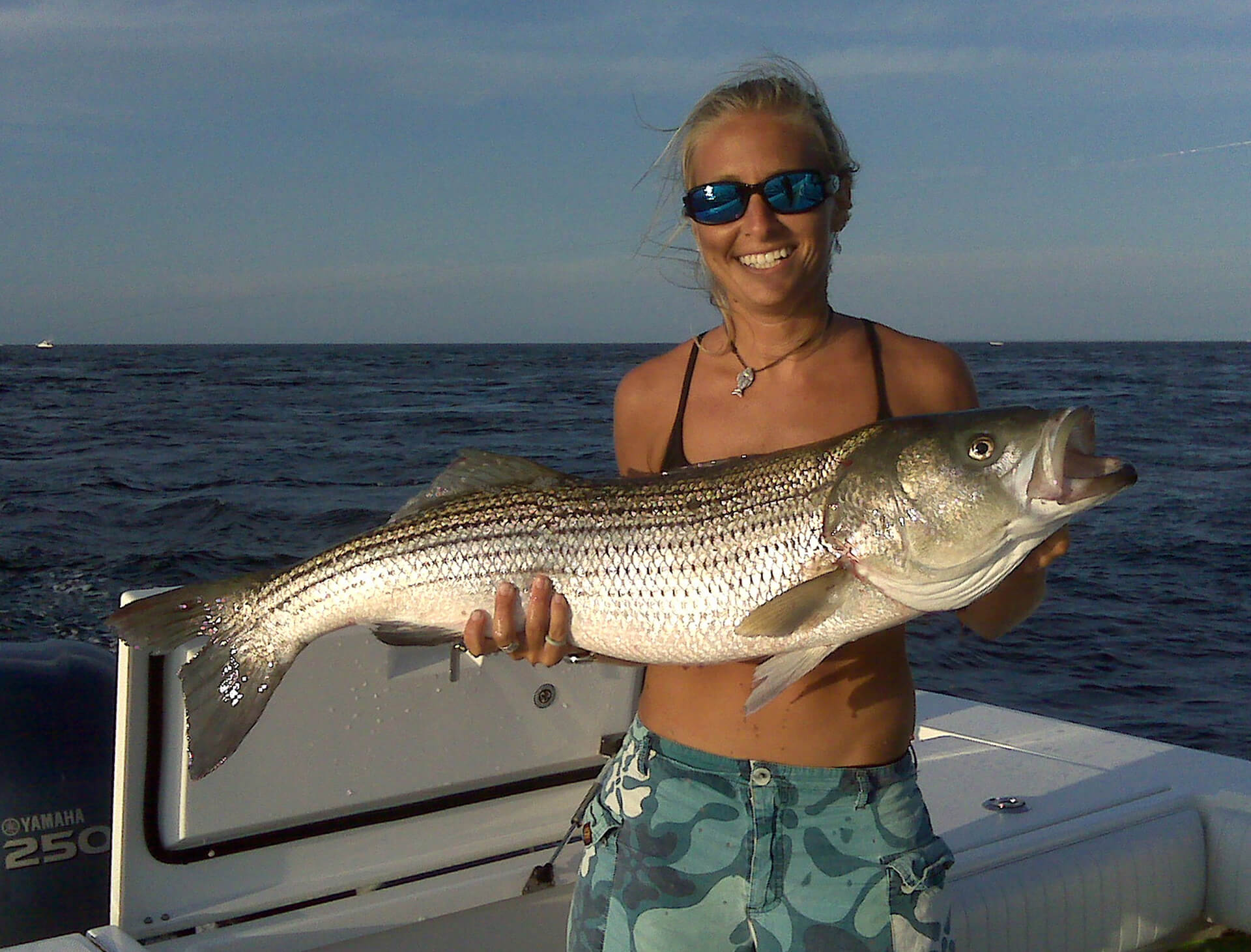Explorer To Delve Into Ocean Adventures

“The ocean is my soul,” Gaelin Rosenwaks, the founder and head of Global Ocean Exploration, said this week. She will be talking about her life as an explorer on Thursday, August 2, as the inaugural speaker in a series of weekly sunset talks at The Grey Lady Restaurant in Montauk. The series is called the Explorer’s Club by the Beach: Sunset Speakers Series.
“My whole family loves the ocean. And love fishing. I started fishing when I was maybe three years old,” Rosenwaks recalled. “My mom would always sort of throw us in the ocean, and take us swimming and pulling seine nets.” As a child, she would study the fish she caught, and, of course, eat the catch of the day. “It made me love the ocean,” she said.
The title of Rosenwaks’s talk is “Tales from the Open Ocean, Adventures at Sea.” It will cover “ocean exploration and ocean conservation,” from the Arctic to the Antarctic, she said.
She has researched extensively the vanishing polar ice caps. “The Arctic is changing rapidly. You can now take a ship to the North Pole. That is a pretty frightening thing. You can no longer ski to the North Pole. Things like that are daunting.”
It is important to understand the cause and impacts of these changes, she said. “Hopefully, we can slow it down. These changes are happening. Manmade problems are speeding it up. By humans speeding up the process, animals can’t adapt the way they would” over time.
“Climate change and warming temperatures and increased acidity is a problem facing everything in the ocean. Nothing is not going to be touched,” she said.
However, the talk will not be one of doom and gloom, but, rather, one of hope. Rosenwaks will be sharing images of oceanic wildlife and vistas. She is compiling a documentary about scientists studying the healthy coral surrounding Palau in the Micronesia area.
She will also cover the work she has done on large fish, such as bluefin tuna and the giant trevally. The tuna have a special place in Rosenwaks’ heart. “I worked on them for 15 years,” she said. “In order to have tuna on your plate, we have to have plenty of tuna in the ocean. I did all my graduate work on bluefin tuna.”
Rosenwaks said satellite tagging bluefin tuna could help scientists understand where these fish swim in the ocean, so that better management systems overseeing when and where to fish for them could be put in place. “Better management doesn’t mean not fishing for them, it means keeping them in the ocean,” she said.
Bluefin tuna are highly migratory — “They travel across the ocean,” she said. They are also highly exploited due to their incredible value in Japan, where one bluefin sold for over $1 million in 2013. While their numbers are alarmingly low, the same is not true of other species of tuna caught in local waters.
Rosenwaks believes it is important for the scientific community to work closely with the fishing community. “They understand the ocean. Their livelihood depends on it,” she said.
Fishing in local waters is a passion for Rosenwaks. So, too, are the beaches. She disagreed with the decision by the Army Corps of Engineers, along with the town, to place sandbag revetments along the beach in Montauk where developers, decades ago, built motels. “It is a real shame that they didn’t listen to our scientists, who said this isn’t going to work. You are going to destroy the beach. And this is a community based around the beach,” she lamented.
Dunes are important, she said. “We have destroyed the natural dune that had been built up for hundreds of years. We lost a natural barrier that has been quite effective for a long time. A structure of any sort— whether it is a building or sandbags — well, nature has a way of destroying everything that man creates. You will see that natural dunes survive a storm but nothing else will,” she added.
Rosenwaks was born in New York City, but has been coming to Montauk her whole life. Six years ago, she decided to make Montauk her full-time home. She used to walk the downtown beaches during the winter months. When the winter storms over the past couple of years scoured the downtown beaches, shortening them and exposing the sandbags, she stopped walking there. “It just breaks my heart,” she said.
However, she remains optimistic. “If we lose our optimism, then we won’t care anymore. We have to have hope. Lots of change is happening. Hope is, that not all change will be bad,” she concluded.
The Grey Lady Restaurant is located at 440 West Lake Drive in the Montauk dock area. The doors open at 5 PM, and admission to the talk is free. The series, sponsored by the restaurant’s owner, Ryan Chadwick and The Explorers Club at the Beach, will run through August.
t.e@indyeastend.com









